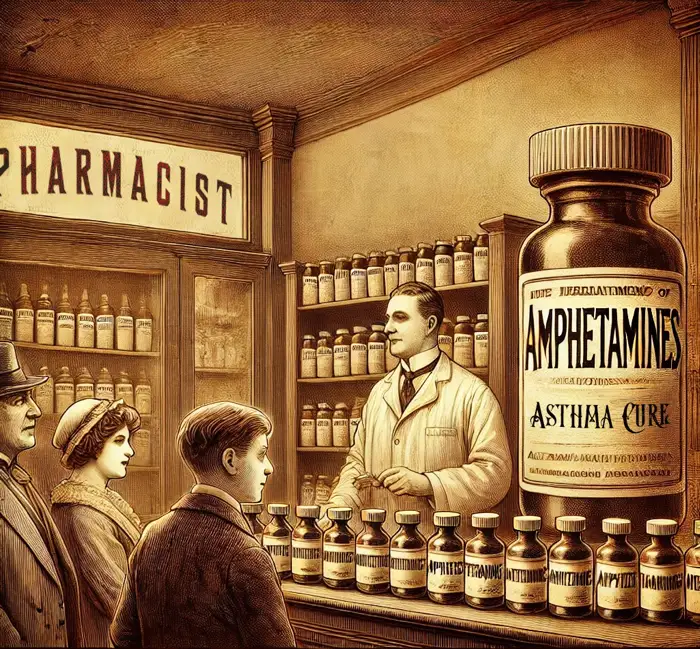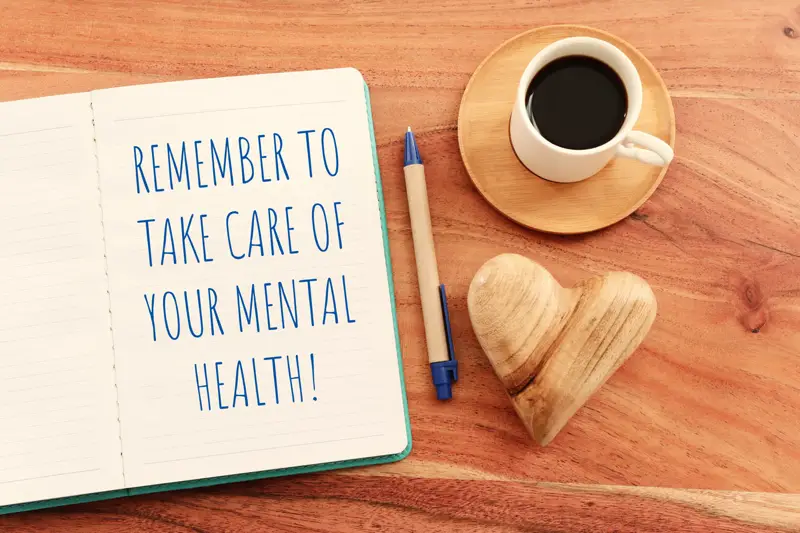Stimulant Addiction and Recovery
Struggling with stimulant addiction? Dilworth Center in Charlotte, NC, offers specialized treatment for Adderall and Vyvanse abuse. Learn more about our personalized recovery programs and start your journey to sobriety.
Prescription stimulant addiction, including substances like Adderall and Vyvanse, can have severe consequences on both physical and mental health. At Dilworth Center, we offer specialized treatment programs to help individuals overcome stimulant abuse and achieve lasting recovery. Whether you’re dealing with Adderall withdrawal effects or the challenges of getting off Vyvanse, our comprehensive approach provides the support and care you need. Located in Charlotte, NC, our treatment center is dedicated to guiding you through every step of your recovery journey, helping you regain control of your life.
Understanding Stimulant Addiction
Stimulant Effects on Humans
Prescription stimulants like Adderall and Vyvanse are often abused for their stimulating effects, but this misuse can lead to severe physical and mental health issues. Side effects of abusing Adderall include insomnia, increased heart rate, and anxiety. Long-term abuse can lead to more serious health problems, such as heart complications and mental health disorders. Recognizing the effects of abusing Adderall and methylphenidate abuse is crucial for those seeking recovery.

The History of Stimulant Addiction
The history of stimulant addiction is deeply intertwined with the development and widespread use of prescription medications like Adderall, Ritalin, and Vyvanse, as well as illicit stimulants such as methamphetamine and cocaine. These substances have been both hailed for their therapeutic benefits and condemned for their potential for abuse and addiction.

Early Development and Medical Use
Stimulant addiction can be traced back to the early 20th century when amphetamines were first synthesized. Amphetamine was discovered in the late 19th century by a Romanian chemist, Lazăr Edeleanu, but it wasn’t widely used until the 1920s and 1930s. During this period, amphetamines were marketed as a treatment for various conditions, including asthma, narcolepsy, and even depression. These drugs gained popularity due to their ability to increase alertness, boost energy, and enhance concentration.
By the 1930s, amphetamines were being prescribed in the United States under brand names like Benzedrine. The military also used these stimulants during World War II to help soldiers stay awake and maintain focus during long missions. However, the widespread use of amphetamines during the war led to the first significant wave of addiction, as soldiers returning home struggled with dependence on the drug.
Rise of Prescription Stimulants
After World War II, there was an increase in the use of stimulants, especially with the development of medications for treating Attention Deficit Hyperactivity Disorder (ADHD) and other conditions. In 1955, Ritalin (methylphenidate) was introduced and became a common treatment for hyperactivity and attention disorders in both children and adults.
In the 1990s, Adderall, a combination of amphetamine salts, was introduced and became one of the most prescribed drugs for ADHD. Vyvanse, another stimulant, was introduced in 2007 as a prodrug of amphetamine, intended to have a lower potential for abuse. However, despite these advancements, the potential for abuse of methylphenidate and Vyvanse became apparent, especially as these drugs were increasingly used off-label for cognitive enhancement and performance improvement.

The Emergence of Stimulant Abuse
As the use of prescription stimulants increased, so did their misuse. By the early 2000s, stimulant abuse had become a significant public health issue, especially among high school and college students who used these drugs to improve academic performance. The non-medical use of Adderall and similar medications became widespread, resulting in an increase in speed addiction and other stimulant-related disorders.
The culture of using stimulants as a quick fix for academic and professional challenges contributed to the growing problem of stimulant addiction. Many individuals, initially seeking to enhance focus and productivity, found themselves unable to stop using these drugs, leading to dependence and a range of negative health effects.
Stimulant Abuse Today
Today, stimulant abuse remains a critical issue, particularly with the ongoing misuse of prescription medications like Adderall and Vyvanse. The abuse of these drugs is often driven by the misconception that they are safer than illicit drugs because doctors prescribe them. However, the reality is that the side effects of abusing Adderall and other stimulants can be severe, including cardiovascular problems, mental health disorders, and a high potential for addiction.
The increase in Adderall addiction and Vyvanse abuse has prompted greater awareness and regulatory efforts to prevent misuse. Despite these efforts, stimulant abuse continues to pose a significant challenge, particularly in competitive environments where the pressure to perform is high.
The Path Forward
The history of stimulant addiction underscores the importance of careful prescribing practices, public education, and comprehensive treatment options for those dealing with addiction. Since stimulant misuse continues to be a widespread problem, we must continue our efforts to address both the medical and societal factors contributing to this ongoing public health issue. At Dilworth Center, we are dedicated to helping individuals overcome stimulant addiction through evidence-based treatment programs that address both the physical and psychological aspects of addiction. Our approach involves education, support, and personalized care to help individuals achieve lasting recovery.

Symptoms of Stimulant Addiction
Identifying stimulant addiction symptoms involves recognizing both physical and behavioral signs. Common symptoms include severe weight loss, insomnia, and irritability. Behavioral symptoms often involve compulsive drug-seeking behavior, neglect of responsibilities, and social withdrawal. Adderall withdrawal effects can be particularly challenging, with symptoms such as extreme fatigue, depression, and cognitive difficulties. Understanding these symptoms is the first step toward seeking effective treatment.
The Recovery Journey
Recovery is Possible
Overcoming stimulant addiction, whether it’s to Adderall, Vyvanse, or another prescription stimulant, is a challenging but achievable goal. At Dilworth Center, we believe that with the right support and commitment, anyone can reclaim their life from addiction. Our comprehensive treatment programs are designed to address the unique challenges posed by stimulant addiction, helping individuals build a strong foundation for lasting recovery.

Recovery Expectations
Recovery from stimulant addiction, whether it’s Adderall, Vyvanse, or other prescription stimulants, involves navigating both physical and psychological challenges. Understanding what to expect during each stage of recovery can help you and your loved ones prepare for the journey ahead. Here’s a detailed look at the recovery process, focusing on both physical and mental symptoms at each stage. While every individual may have slight variations of this process, this is a good overview of what to expect.

The First 30 Days : Initial Adjustment (After Medical Detox)
In the first month of recovery, many individuals begin their outpatient treatment at Dilworth Center after completing a medically supervised detox with one of our trusted medical partners. During this time, the body starts adjusting to the absence of stimulants. Common symptoms may include fatigue, changes in appetite, and disrupted sleep patterns. While these can be uncomfortable, they usually begin to improve as outpatient care progresses.

Days 31-90: Building a Foundation for Stimulant Recovery
Physical Symptoms:
As you progress through the second and third months, many of the acute physical symptoms will start to diminish. Your energy levels may begin to normalize, and sleep patterns typically improve. Appetite may continue to increase as your body works to recover from the nutritional deficits often caused by stimulant abuse.
Mental Symptoms:
During this stage, the focus shifts to building a strong foundation for recovery. While cravings may still occur, they often become less intense. Therapy sessions, both individual and group, play a critical role in helping you develop coping strategies and address the psychological aspects of addiction. Emotional fluctuations may still be present, but with ongoing support, you’ll begin to experience greater mental clarity and emotional stability.

Days 90-180: Strengthening Recovery Skills
Physical Symptoms:
At this point, most physical withdrawal symptoms have diminished. Your body is still healing, and you might experience enhancements in physical health, such as more consistent energy levels and improved overall wellness. Engaging in regular exercise and maintaining a healthy diet can additionally bolster your physical recovery.
Mental Symptoms:
Mentally, you will focus on strengthening the recovery skills you have developed. This period is about solidifying the habits and coping mechanisms that will support long-term sobriety. Continued participation in therapy and support groups is essential, as these resources help you navigate any lingering emotional or psychological challenges. You may also start setting and working towards personal goals, such as rebuilding relationships or pursuing new interests, which can be incredibly motivating.

Days 180-365: Achieving Long-Term Goals
Physical Symptoms:
As you approach your first year of recovery, your physical health should be significantly improved. Maintaining a healthy lifestyle, including regular physical activity, a balanced diet, and sufficient rest, is crucial to sustaining your progress.
Mental Symptoms:
Mentally, this phase is about achieving and maintaining long-term recovery goals. By now, you’ll likely have developed a strong support network and a set of tools to manage stress and avoid relapse. While cravings may still occur from time to time, they are typically manageable with the strategies you’ve learned. Continued focus on personal growth and goal setting will help keep you on track and motivated to maintain your sobriety.
Beyond the First Year
Recovery extends beyond simply quitting the substance; it involves building a fulfilling and sustainable life. As you progress beyond your first year, your focus will likely shift to maintaining the positive changes you’ve made, continuing to work on personal development, and fostering strong relationships. Ongoing therapy, participation in support groups, and engaging in meaningful activities are all crucial for sustaining long-term sobriety.
At Dilworth Center, we are here to support you not only through the initial phases of recovery but throughout your entire journey towards a healthier, drug-free life. Our comprehensive approach ensures that you have the resources and support you need at every stage of recovery.

Family Support for Stimulant Addiction Recovery
Family Support
Supporting a loved one through recovery from stimulant addiction, whether it’s Adderall, Vyvanse, or another prescription stimulant, is a challenging but crucial aspect of the recovery process. Addiction doesn’t just affect the individual; it deeply impacts families, often causing strain on relationships, communication, and trust. At Dilworth Center, we recognize the vital role that family plays in successful recovery and offer comprehensive programs designed to support both the individual in recovery and their loved ones.


Understanding Stimulant Addiction and Its Impact on Families
Stimulant addiction can lead to behaviors that are difficult for families to understand and cope with, such as mood swings, irritability, and neglect of responsibilities. The psychological toll of addiction often results in damaged relationships, creating an environment of tension, mistrust, and emotional distance. Understanding the nature of stimulant abuse and its impact on both the individual and the family unit is the first step in providing effective support.
Involving the Family in the Recovery Process
It is crucial for families to be actively involved in the recovery process for long-term success. At Dilworth Center, we encourage families to take part in therapy sessions and educational workshops. These sessions are specifically designed to help families learn how to effectively support their loved one’s recovery while also addressing their own emotional needs.
Family addiction therapy sessions provide a safe space for open communication, where family members can express their concerns, frustrations, and hopes for the future. These sessions aim to rebuild trust, improve communication, and address any unresolved issues that may have contributed to the addiction or been exacerbated by it. By working through these issues together, families can create a more supportive and stable environment for recovery.

Dilworth Center Services
Recovering with Dilworth Center
At Dilworth Center in Charlotte, NC, we offer personalized treatment programs to help individuals overcome stimulant addiction. Our evidence-based practices address both the physical and psychological aspects of addiction, providing tools and support for lasting sobriety. Our holistic approach includes individual and group therapy, family involvement, and programs designed to help you thrive drug-free. Whether for yourself or a loved one, we are here to support you on the journey to lasting sobriety.

Take the First Step Toward Lasting Stimulant Recovery
Are you ready to overcome Stimulant addiction? Our expert team at Dilworth Center is here to support you on your path to sobriety. Discover personalized treatment plans that empower long-term recovery. Don’t wait—reach out today and start your journey toward a healthier, Stimulant-free life.

Dilworth Center Treatment Programs

Adult Intensive Outpatient Program (IOP) for Stimulant Addiction
For individuals struggling with stimulant addiction, such as Adderall or Vyvanse, Dilworth Center’s Adult Intensive Outpatient Program (IOP) offers a flexible yet comprehensive treatment option. Our intensive outpatient drug rehab program is designed for those who need structured support while maintaining their daily responsibilities, such as work or family commitments.
Our intensive outpatient addiction treatment focuses on addressing the specific challenges of stimulant addiction. The program includes individual counseling, group therapy, and educational sessions that equip you with the tools needed to manage cravings, develop healthy coping strategies, and prevent relapse. The structured schedule ensures that you receive consistent, high-quality care while also allowing you to live at home and engage in your regular activities.
As part of our outpatient drug treatment, we provide a personalized approach that takes into account your unique circumstances and recovery goals. Our experienced team of professionals will work closely with you to create a treatment plan that addresses both the physical and psychological aspects of stimulant addiction. Through our Adult IOP, you’ll gain the support, knowledge, and skills necessary to achieve and maintain long-term sobriety, all within a supportive and compassionate environment.

Young Adult Intensive Outpatient Program (IOP) for Stimulant Addiction
For young adults grappling with stimulant addiction, finding the right treatment program is crucial to achieving long-term recovery. At Dilworth Center, our Young Adult Intensive Outpatient Program (IOP) is specifically designed to meet the unique needs of individuals in this life stage. Our nonprofit program, with over 35 years of experience in Charlotte and CARF accreditation, is designed specifically to meet the needs of young adults in recovery.
Our rehab facilities for young adults offer a comprehensive approach to treating stimulant addiction, including Adderall and Vyvanse. The program includes individual therapy, group sessions, and educational workshops tailored to help young adults understand the root causes of their addiction, develop healthy coping mechanisms, and build resilience against future challenges.
Our Young Adult IOP provides structured, evidence-based care for teens, supported by family involvement and long-tenured licensed staff.

Adolescent Intensive Outpatient Program (IOP) for Stimulant Addiction
Teenagers facing stimulant addiction, whether it’s to Adderall, Vyvanse, or other prescription drugs, require specialized care that addresses both their developmental needs and the unique challenges of adolescence. At Dilworth Center, our Adolescent Intensive Outpatient Program (IOP) is designed to provide effective treatment in a structured and supportive environment. As one of the leading rehab facilities for teens in Charlotte, NC, we offer a comprehensive approach that supports both recovery and personal growth.
Our rehabilitation center for teens focuses on treating stimulant addiction through a combination of individual therapy, group counseling, and family involvement. This holistic approach ensures that each teen receives personalized care that addresses the physical, emotional, and psychological aspects of addiction. We understand the pressures that adolescents face, and our program is designed to help them develop healthy coping mechanisms, improve self-esteem, and build a solid foundation for a drug-free future.
As one of the top drug treatment centers for teens, Dilworth Center emphasizes the importance of family participation in the recovery process. We offer family therapy sessions to help rebuild trust and improve communication, creating a supportive environment that fosters long-term recovery. Our Adolescent IOP provides the tools and support necessary for teens to overcome addiction, continue their education, and pursue their goals with confidence.

Family Program for Stimulant Addiction
At Dilworth Center, we understand that addiction affects not only the individual but also their entire family. Our Family Program is designed to provide complete support and therapy to families dealing with the challenges of a loved one’s addiction. Through our family addiction support services, we offer various resources to help families understand addiction, improve communication, and create a supportive home environment.
Our family addiction therapists work closely with family members to address their concerns, educate them about addiction, and create strategies to assist their loved one’s recovery journey. This program consists of group therapy sessions, educational workshops, and individual counseling, all designed to strengthen family connections and encourage collective healing.
By participating in our family addiction therapy sessions, families gain valuable insights and skills to effectively support their loved ones. Located in Charlotte, NC, Dilworth Center offers a nurturing and empathetic setting where families can heal together. Our commitment to including families in the recovery process is fundamental to our approach, ensuring that everyone affected by addiction can find hope and healing.

Co-Occurring Mental Health Treatment
At Dilworth Center, we understand that stimulant addiction often goes hand-in-hand with mental health challenges such as depression and anxiety. Our Mental Health Dual Diagnosis Program is specifically designed to address the complexities of depression and substance use, providing comprehensive care that treats both conditions simultaneously. For individuals struggling with depression and addiction, our program offers integrated therapy that helps them understand the connection between their mental health and substance use, enabling them to develop healthier coping strategies. Additionally, we focus on the treatment of anxiety and addiction, recognizing that anxiety can be both a cause and a consequence of stimulant abuse. Through evidence-based practices, we help patients manage their anxiety without relying on stimulants, reducing the risk of relapse and promoting long-term recovery. Our holistic approach ensures that both the psychological and physical aspects of addiction are addressed, providing a solid foundation for sustained sobriety and improved mental health. At Dilworth Center, we are committed to helping individuals overcome the dual challenges of addiction and mental health disorders, supporting them every step of the way on their journey to recovery.

Relapse Prevention
At Dilworth Center, we recognize that maintaining sobriety after overcoming stimulant addiction requires ongoing support and effective strategies to prevent relapse. Our Relapse Prevention Program is designed to equip individuals with the tools and knowledge they need to stay on the path to recovery. Central to our program are personalized relapse prevention plans that are tailored to each individual’s unique triggers and challenges. These plans include a variety of relapse prevention strategies, such as identifying high-risk situations, developing healthy coping mechanisms, and creating a strong support network. Our approach also includes relapse prevention therapy, which focuses on helping individuals build resilience against the temptations of returning to stimulant use. Through individual and group therapy sessions, we teach practical skills for managing stress, handling cravings, and navigating the challenges that may arise in everyday life. At Dilworth Center, our goal is to ensure that each person has the resources and support they need to achieve lasting sobriety and continue their journey towards a healthier, drug-free life.











